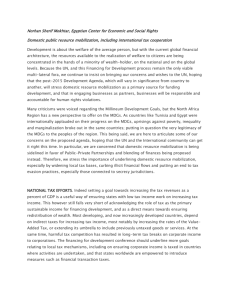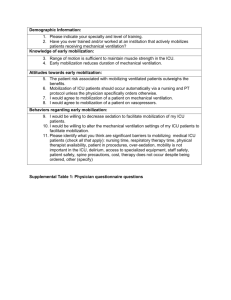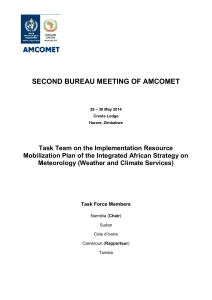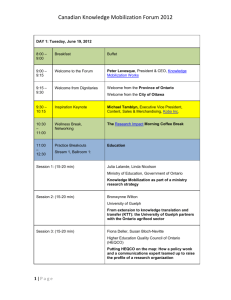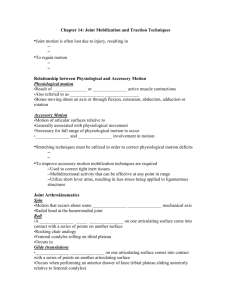2.163012_Introduction
advertisement
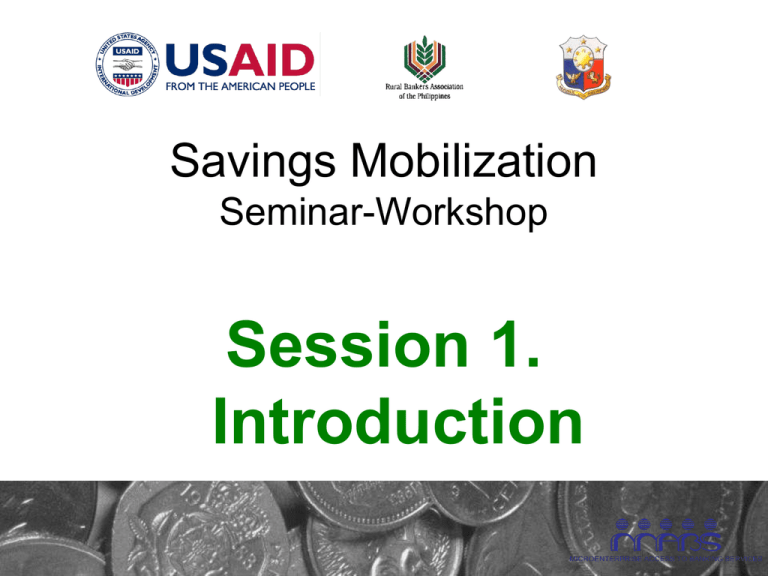
Savings Mobilization Seminar-Workshop Session 1. Introduction Introduction 1. Seminar objectives 2. Why and how people save 3. What is savings mobilization? 4. Success factors 5. Keys to viable savings mobilization Seminar Objectives Participants will: • Analyze their bank’s performance in mobilizing deposits. • Set deposit targets. • Learn and apply market research tools for designing new deposit products. • Design new product concepts. • Formulate strategies for increasing deposits. Seminar Objectives…cont. Group Activity 1: Why does our bank need training on savings mobilization? 1. Arrange the reasons printed in the set of cards in order of importance to your bank. 2. Add other reasons you think are important to your bank. 3. Paste the reasons on Manila paper and hang on the wall. 4. List down the reasons agreed upon by your group when completing the exercise “Our understanding of why we need training on savings mobilization” Group Activity: Why our bank needs training on Savings Mobilization Session 1. Handout 1 Our understanding of why our bank needs training on Savings Mobilization. 1. 2. 3. 4. 5. Why People Save & How They Save A. Why do people save? B. How do people save? Why do people save? Children’s education Capital for new or existing business Retirement / wealth accumulation Why do people save? (cont.) Emergency needs – illness, disability, death Everyday needs – school expenses, food, utilities, – transportation, clothing, rent, Acquire fixed assets – house renovation, appliances Special occasions – fiestas, weddings How do people save? • Non – monetary form • Monetary form How do people save…cont. Non-Monetary Form – jewelry – livestock – inventory – land – house – durable items Monetary Form – cash – passbook savings – time deposit – rosca (“paluwagan”,” bubo-ay” ) How do people save …cont. Problems with non-bank savings • Cash - potential for theft, overspending, demands from family • Jewelry - theft, loss, difficulty of selling in an emergency • Livestock - theft, death of animal, difficult to sell in an emergency • Inventory - spoilage, theft, storage • Land & house - not easy to sell • Durable items - depreciation, theft How do people save…cont. Advantages of Bank Savings • Withdraw-ability - easy access • Security - deposits are insured; no problems of theft • Returns - interest income; investment • Access to other services - loans What is Savings Mobilization? The process of capturing, protecting, managing and using funds solicited from the public to finance the bank’s lending and other capital needs It is the other half of financial intermediation, where deposits from savers are used by banks to make loans to borrowers Major Fund Sources for Lending Internal Sources • Deposits • Loan Collections • Earnings • Capital External • Borrowings Success Factors in Savings Mobilization • A corporate culture to mobilize deposits • Management commitment and support to a culture of reliance on internal funds • Savings mobilization viewed as a permanent and long-term bank activity • Competent and motivated marketing staff • Ability to look beyond core business Keys to Viable Savings Mobilization 1. Achieving volume 2. Managing operating costs Keys to Viable Savings Mobilization: Volume How does a bank achieve volume? 1. Build trust & confidence = Location. Convenience. = Physical Appearance. Professional Image. = Security. 2. Expand to clients with bigger deposits 3. Product Diversity. Feel and assess the needs of the market 4. Institutional involvement in savings mobilization. Keys to Viable Savings Mobilization: Managed Costs • Keep interests competitive with market rates; • Balance administrative and transaction cost vs. deposit balances. Examples: – Give incentives such as higher interest rate, special gift, interest paid in advance, or tax free interest when deposit is kept at least 5 years. Keys to Viable Savings…cont.: Managed Costs More Examples: - Set higher minimum maintaining balance/s to earn interest - Incentives for clients and staff to increase average outstanding balances to meet ‘break-even’ levels; - Offer “value-added” features in place of some interest. Ex. Free life insurance premiums, appliance, other household items, etc.

